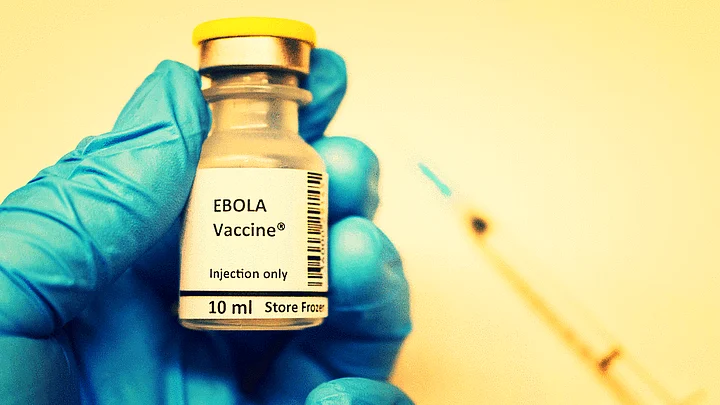After nearly 11,000 deaths and 30,000 infections, scientists at the World Health Organisation have announced that an experimental vaccine has proved to be almost 100% effective against Ebola, the most lethal virus in the history of mankind.
A fool-proof vaccine is always great news but one for Ebola is a giant medical leap. In the last four decades, there has been zero progress in the fight against the deadly virus.
The Trial and the Vaccine
For more than a year, over 11,000 people participated in a controlled clinical trial in Guinea, one of the three African nations hardest hit by the disease in 2013 and the results were astounding.
Within 10 days of the experimental vaccine shot, no one contracted the highly communicable disease even after living in close quarters of the infected.
The volunteers were divided in two sections, one got the vaccine and the other, the placebo. Not one person in the group of nearly 6,000 people who received the vaccine contracted the deadly illness. In comparison, 23 people in the group which was not vaccinated got the infection.
Merck plans to commercially develop the vaccine. In order to do so, the pharmaceutical giant is conducting extra rounds of testing on children and the vulnerable population. The vaccine will be ready for the US FDA’s approval by the latter part of 2017.
While this promising vaccine comes too late for the thousands of people who lost their lives in the 2013 Ebola epidemic which wiped away pockets of West Africa, it offers a line of defence against the virus, should it strike once again.
The Vaccine Is Not Ideal But It’s the Best Bet We’ve Got
There are five sub-types of Ebola, two of these strains are known to attack Africa. A big flaw in the new vaccine is that it works against only one of the two most common strains of the Ebola virus. At this point it is also not known for how long the effect of the vaccine lasts and when is a booster dose required. Besides this, it is fascinating how researchers developed this vaccine.
By the time research started for this vaccine in 2015, the epidemic in West Africa was at the tail-end. Enrolling volunteers and comparing them to a controlled group was difficult so they got creative and used something called the “ring vaccination” method. This method was last used in the early ‘70s when scientists were developing the smallpox vaccine. Once scientists heard of a confirmed case, they traced everyone in the close family and neighbourhood and either vaccinated them or gave them a placebo dose.
The initial results were so positive that the trial was stopped midway and all contacts of an infected person were given the vaccine dose. No one developed Ebola and no adverse side-effects were reported, barring fever or headache.
The results of the experimental vaccine were published in the latest edition of medical journal, The Lancet.
Also Read: After Ebola, World Still Unprepared for Global Pandemic
(At The Quint, we question everything. Play an active role in shaping our journalism by becoming a member today.)
